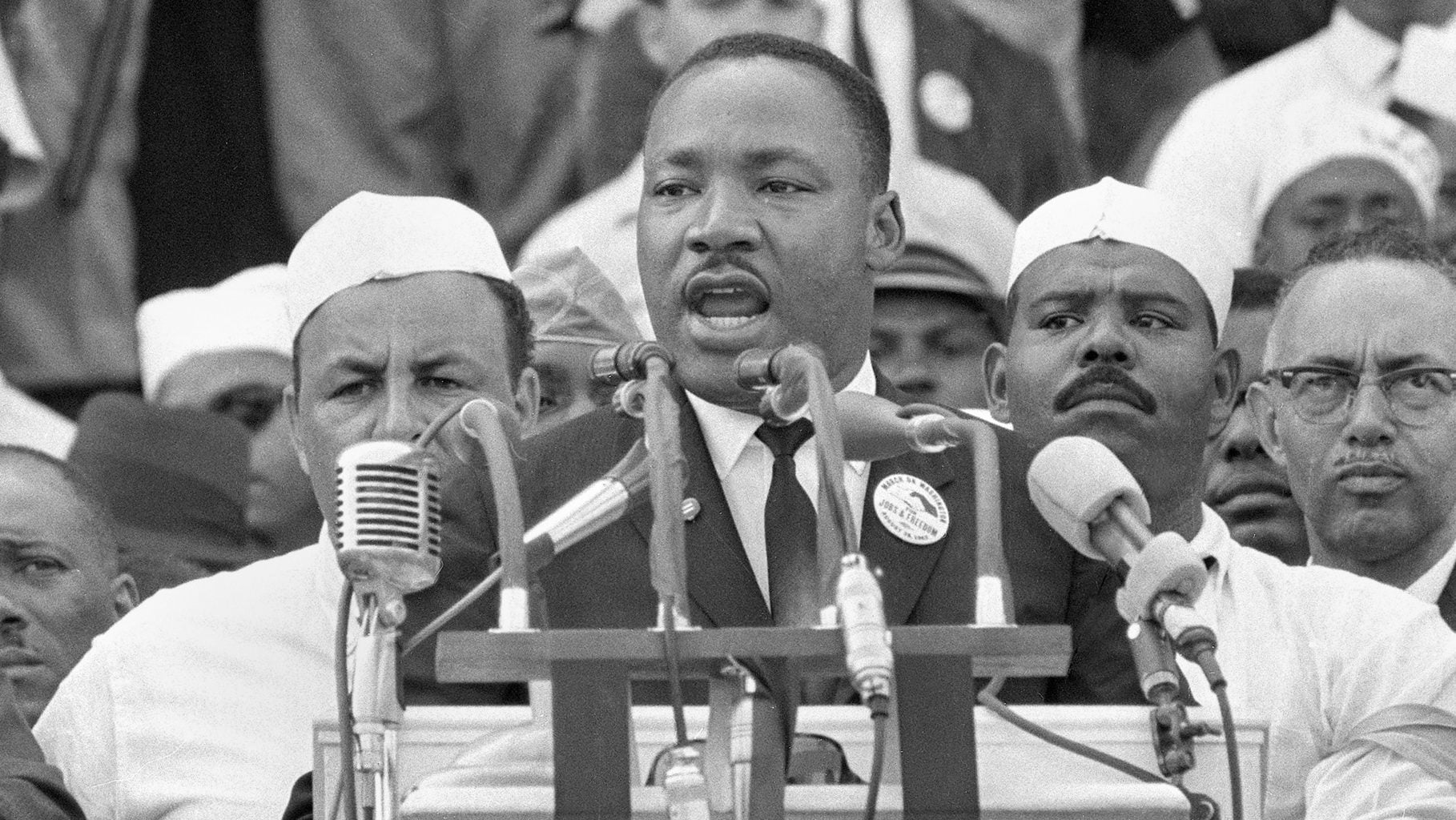As racism persists, leaders say March on Washington anniversary is a time to learn from the past
Advocates say Black communities are presently experiencing a confluence of attacks, which has been punctuated by the recent mass shooting in Jacksonville, Florida.
Sixty years after the March on Washington, civil and workers’ rights leaders are calling on the nation to look to its past as it works to address rising racial tensions in the U.S. and political debates on issues ranging from Black freedoms to the economy.
During a march Saturday marking the 60th anniversary of the March on Washington, civil rights leaders partnered with labor leaders to reignite the collaborative movements for racial and economic justice. Rev. Al Sharpton and Martin Luther King III led the civil rights community in joining the AFL-CIO, the nation’s largest federation of unions, as organizers of this year’s march.
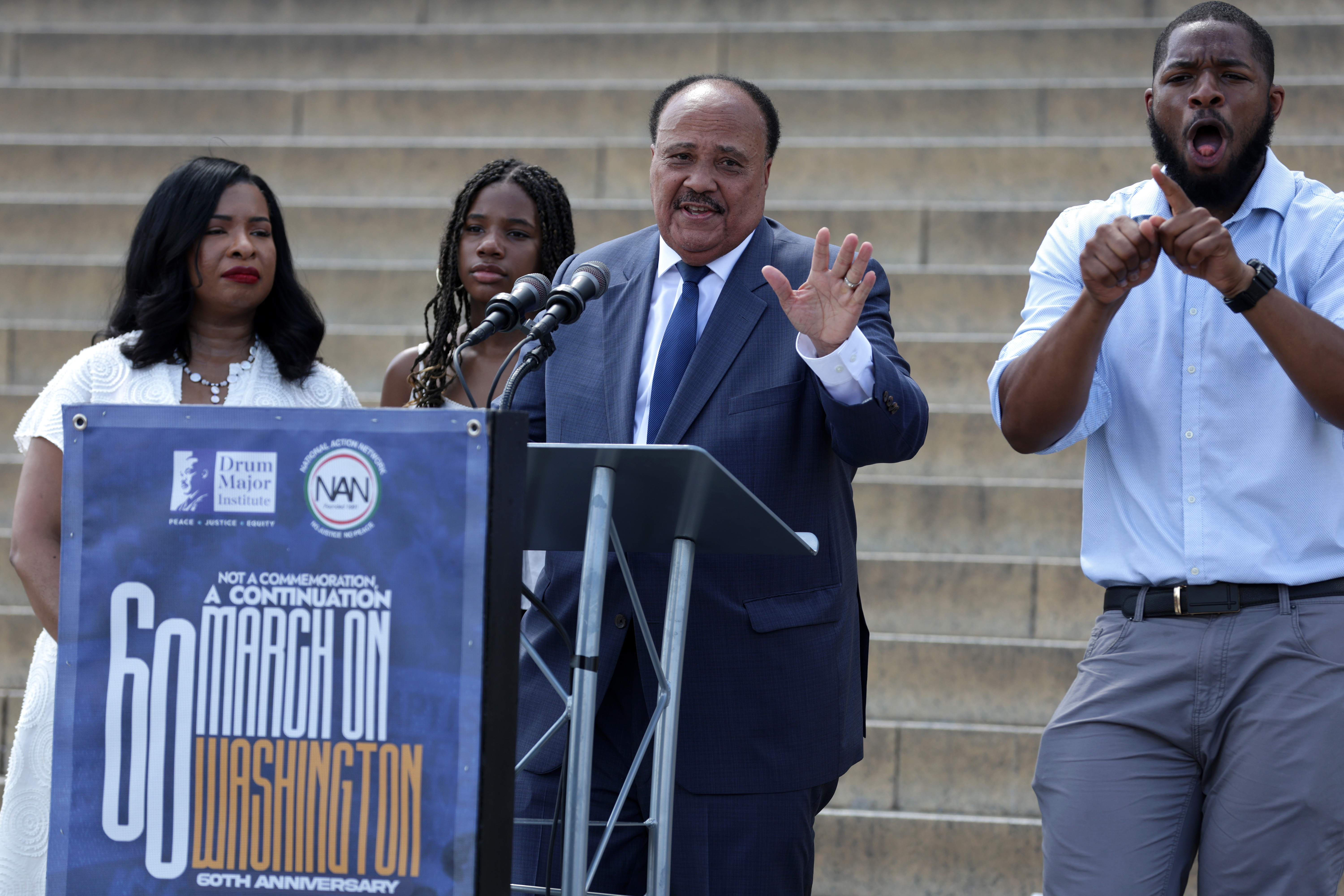
“This historic occasion could not be coming at a more pivotal moment in our history,” King III said in a statement.
Referring to actions taken by Republicans to ban Black history in public school classrooms and restrict voting access in historically marginalized communities, the eldest son of Dr. Martin Luther King, Jr., added, “Not since Dr. King took to the streets of Washington have we seen such an assault on our democracy and attempts by politicians to disenfranchise marginalized communities, particularly Black and brown Americans.”
Fred Redmond, secretary-treasurer of AFL-CIO, said partnering with civil rights leaders was important for labor unions because the march was always intended to be a joint movement for economic and racial justice – something he says is needed now more than ever.
“What a lot of people forget is that the full name of the original March on Washington was the March on Washington for Jobs and Freedom,” said Redmond, who served as a labor organizer for decades before being elected last year as the highest-ranking Black American officer in the history of the U.S. labor movement.
He told theGrio the organizers of the original March on Washington for Jobs and Freedom, A. Philip Randolph and Bayard Rustin, understood, “You can’t have racial justice without having economic justice.”
Redmond continued: “They knew that America’s promise of democracy was a hollow promise as long as Black people experienced high rates of poverty and widespread workplace discrimination and racial violence.”
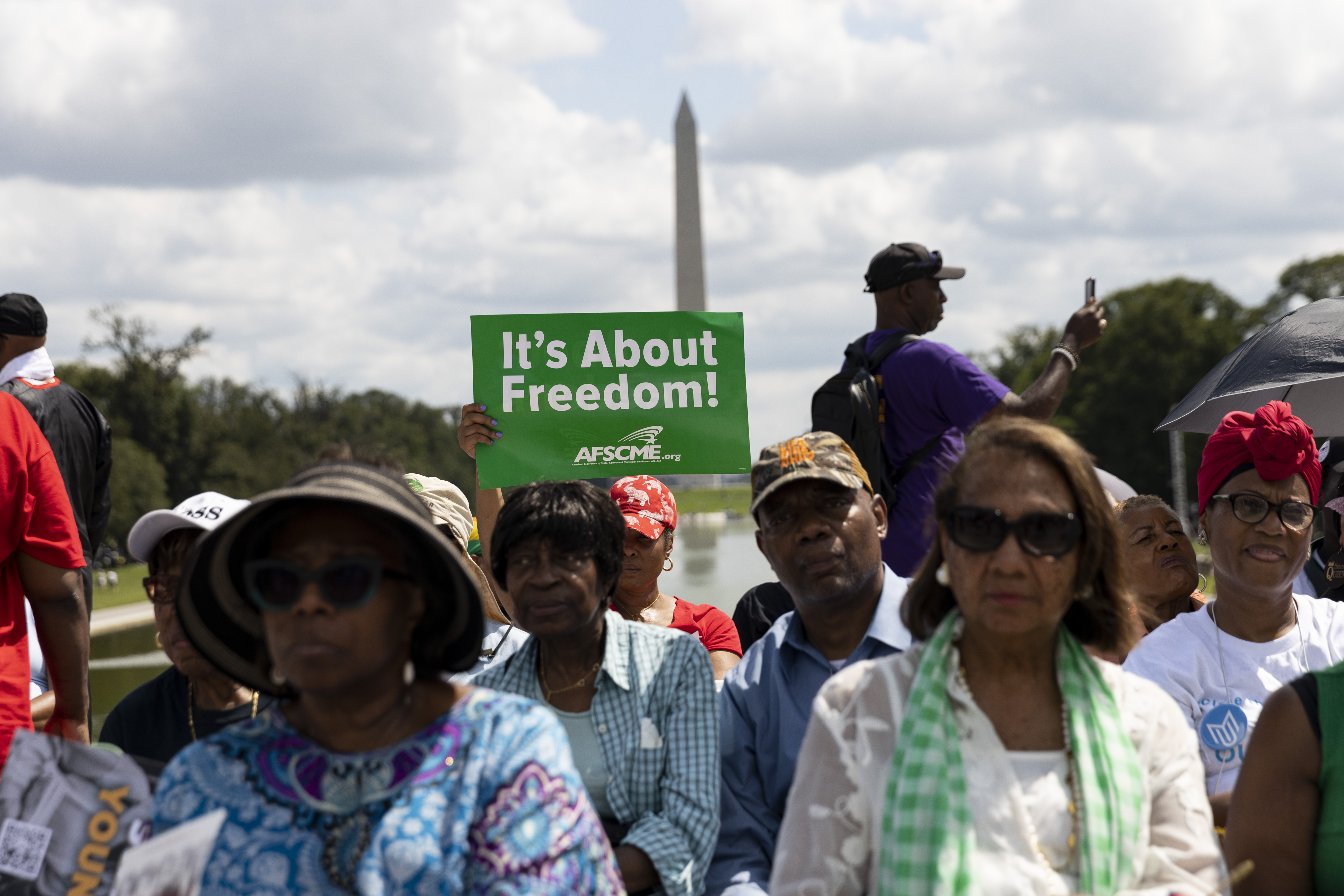
Civil and labor rights advocates say Black communities are presently experiencing a confluence of attacks punctuated by the recent mass shooting in Jacksonville, Florida, where a white gunman fatally shot three Black shoppers inside a General Dollar store. Coincidentally, the shooting occurred on Saturday when leaders commemorated the March on Washington, welcoming thousands to the National Mall.
Bernice King, the youngest daughter of MLK Jr., acknowledged that while there has been significant progress, there appears to be a cycle of violence and attacks on hard-won freedoms for Black Americans. The CEO of The King Center told theGrio that leaders and organizers today should look to the movement of the 1950s and 1960s on navigating current racial barriers.
“There’s a lot we can learn from that movement in terms of how to conduct ourselves in helping to overcome these challenges that we face today so that we don’t continue to get frustrated and weary and worn out,” King said.
She added, “We have to understand there was a strategy, there was an agenda, there was a focus.”
Redmond added that the playbook for racial justice must also include a strategy to address existing economic challenges for Black communities.
“The issue of white supremacy, the issue of a pattern of disparities against people of color in areas like employment, areas like housing, areas like health care, is still putting Black workers at a disadvantage in our overall society,” he told theGrio.
Despite those economic barriers, Redmond lauded President Joe Biden for taking actions he believes could reshape the economy to be more equitable for Black Americans.
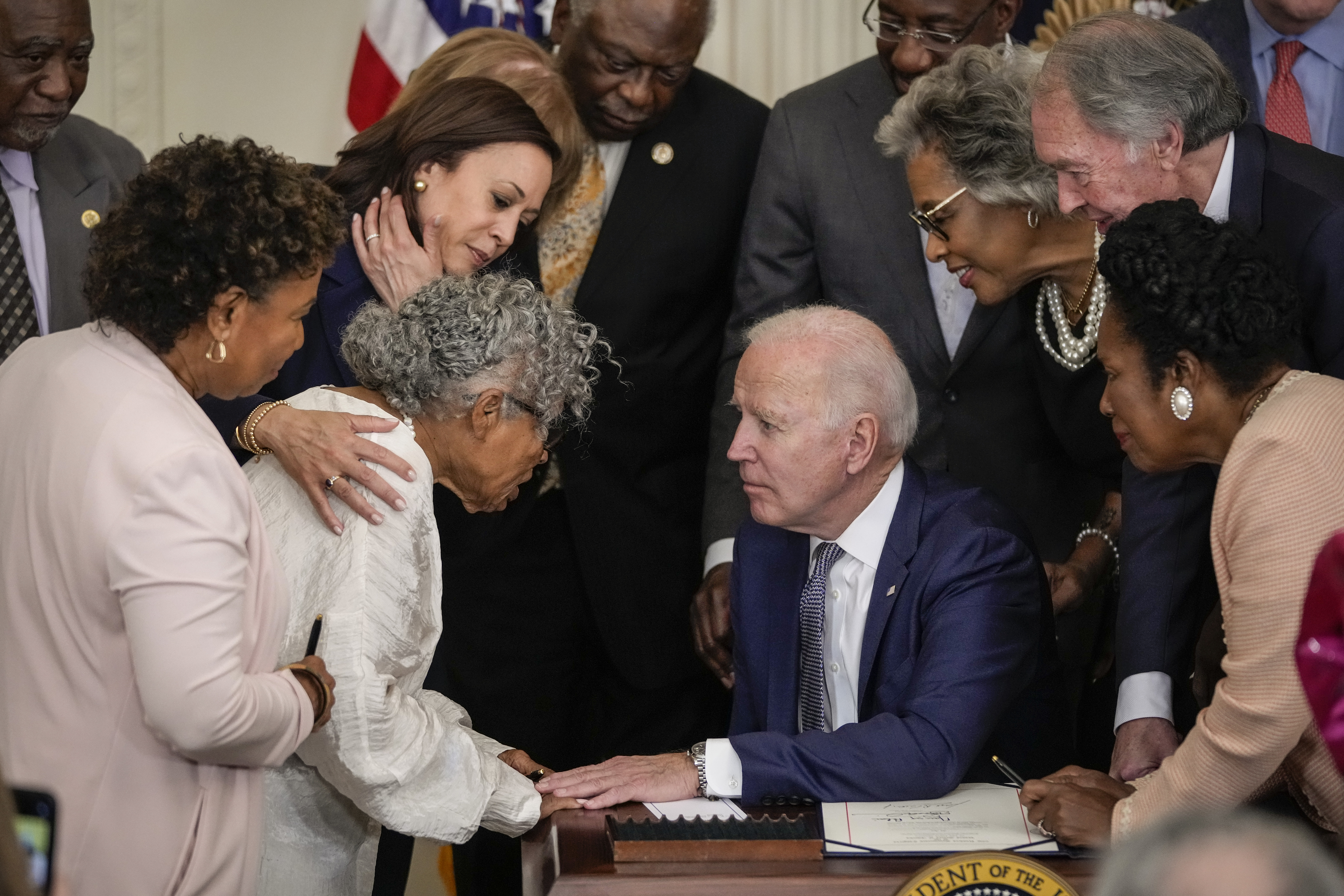
“Time and time again, this president stood with working people to tackle the most pressing challenges we face, and he’s trying to create an economy that works for all of us,” he told theGrio. “This president understands the inequality in this country, and he’s doing everything he can through his policies.”
Redmond noted, for example, that through federal funding from laws signed by Biden, like the Infrastructure Investment and Jobs Act and Inflation Reduction Act, most trainees in apprenticeship programs and pre-apprenticeship programs for new jobs being created have been people of color and women.
“They really hit every zip code in this country and really uplifted … all Americans but Black people, particularly, because we had always been underemployed,” Redmond said.
But as President Biden works to usher in a more equitable economy, including a new clean energy economy to combat the climate crisis, he is also tasked with leading the nation amid growing racial tensions that activists say are being fueled by “anti-woke” rhetoric and policies from Republican elected officials.
Biden, who will deliver remarks to commemorate the 60th anniversary Monday evening, said the recent shooting in Jacksonville is a reminder that “we must say clearly and forcefully that white supremacy has no place in America.”
The president added, “We must refuse to live in a country where Black families going to the store or Black students going to school live in fear of being gunned down because of the color of their skin. Hate must have no safe harbor. Silence is complicity, and we must not remain silent.”

Bernice King said that “no matter who is in the White House,” Black community leaders and organizers “still have to be vigilant.” For Black Americans growing weary of some regression since achieving voting rights and civil rights several decades ago, King perceived, “The problem is we haven’t figured out how to connect the inside with those in the streets.”
She explained, “Whenever you disconnect those two, then that’s when you have some of the feeling like you’re going around a mountain over and over and over again because it all has to connect.”
Redmond believes that connecting movements is the only way to truly fulfill the dream of Dr. King and the organizers of the March on Washington.
“We have to recommit ourselves and really stay focused on the issue of racial justice and economic justice because although we came a long way, we still gotta way to go,” he told theGrio.
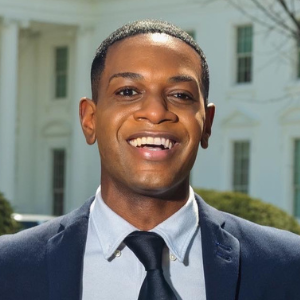
Gerren Keith Gaynor is a White House Correspondent and the Managing Editor of Politics at theGrio. He is based in Washington, D.C.
TheGrio is FREE on your TV via Apple TV, Amazon Fire, Roku, and Android TV. Please download theGrio mobile apps today!
